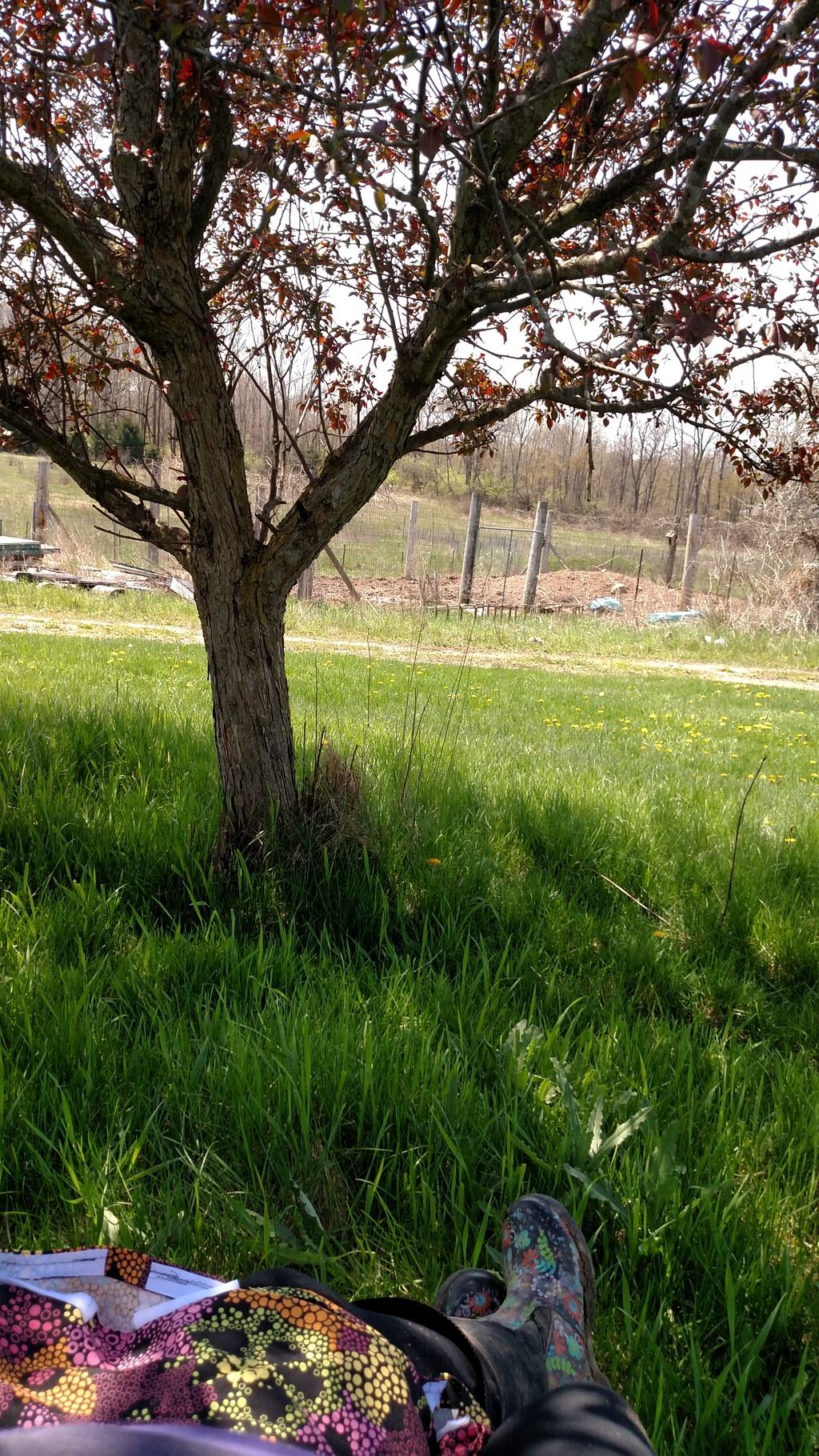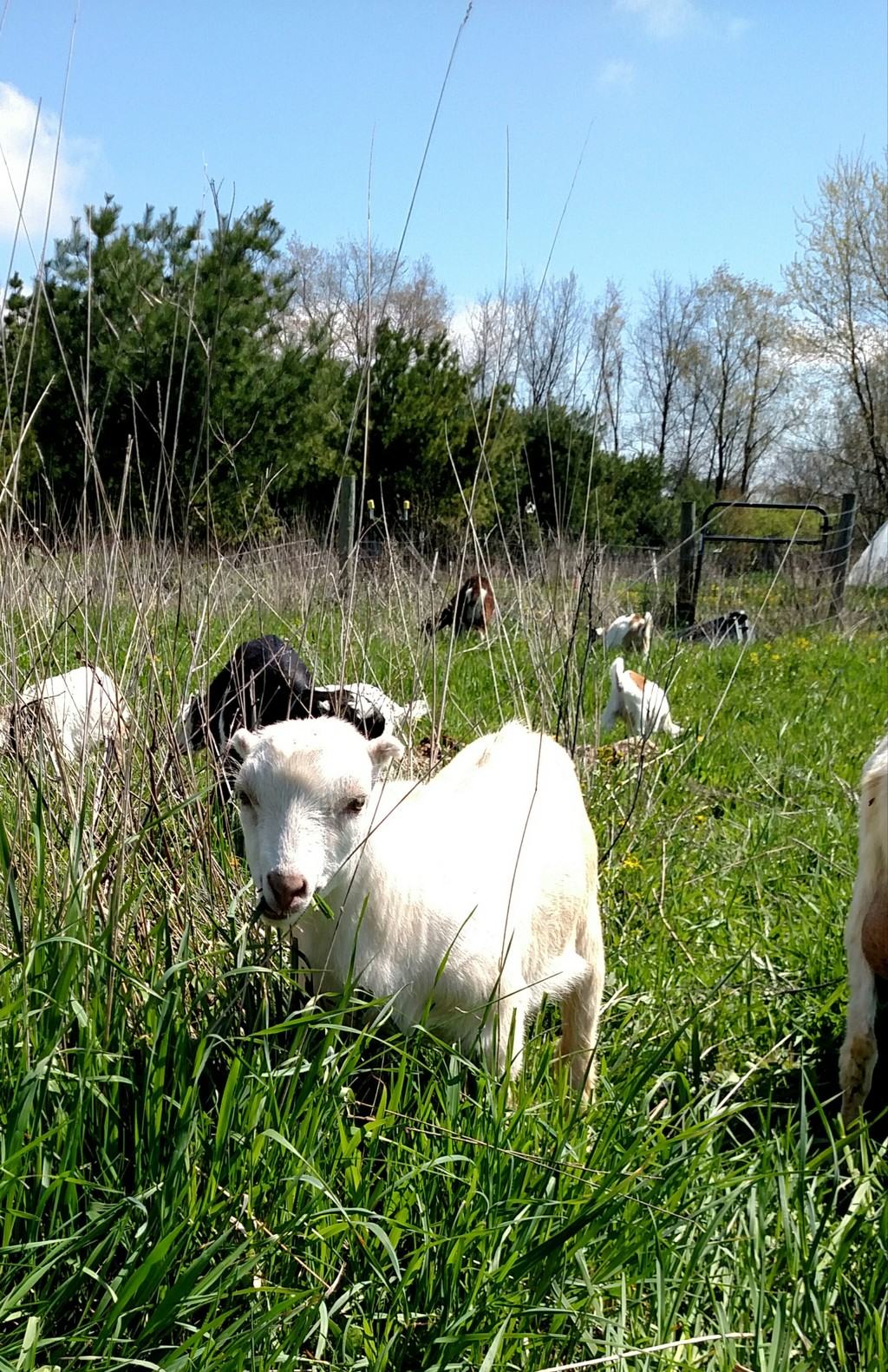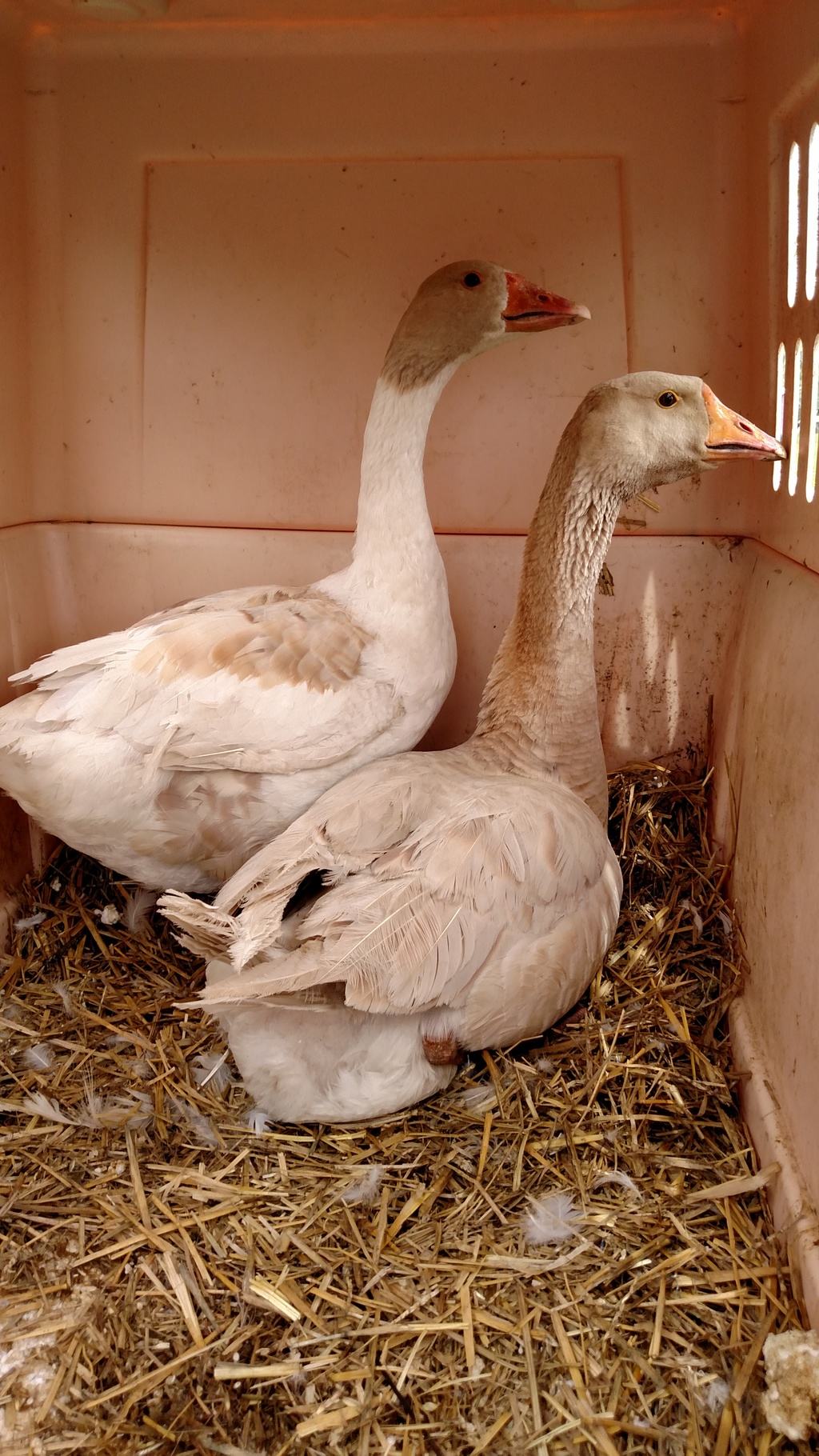It’s been busy times here on the farm as summer winds down. We have lots of projects we need to complete before the cold weather comes, and it may seem premature to even talk about that, but it’s just a few weeks away, and we are keenly aware of it. We’ve also been trying to take some time here and there to recharge our own batteries by attending some of the local county fairs this summer – much to the delight of our son. We don’t get to take vacations away from home because of the farm, so those few hours of enjoyment are precious to us all. Last week at the Genesee County Fair, George and I both got to hold juvenile alligators as part of one of the demonstrations there, which was quite exciting and informative. We’ve had a few late nights of chores after those fairs, but the fun times were worth it!
We’ve been taking the time to reflect on the direction of the farm moving forward, as well, and have made some further changes. If you are a regular reader, you already know that we discontinued our sale of duck eggs a couple of weeks ago due to having more supply than demand, and we stated in that post that we were continuing to evaluate where other changes might be necessary. We’ve altered course in a couple of other areas, and I’m here today to tell you about those.
 The first is our decision to stop being a year-round milking farm. If you are familiar with goat dairy farms, you undoubtedly know that goat does must be bred yearly to refresh their milk supply, because milk is a response to being pregnant and having the need to feed those babies. Goats have a five month gestation period, and they need at least the last two months of that pregnancy being dried off of milk, in order to insure their own health as well as that of their developing kids. Most farms address this by shutting down for a few months in the winter. This gives both the herd and the farmers a much-needed break.
The first is our decision to stop being a year-round milking farm. If you are familiar with goat dairy farms, you undoubtedly know that goat does must be bred yearly to refresh their milk supply, because milk is a response to being pregnant and having the need to feed those babies. Goats have a five month gestation period, and they need at least the last two months of that pregnancy being dried off of milk, in order to insure their own health as well as that of their developing kids. Most farms address this by shutting down for a few months in the winter. This gives both the herd and the farmers a much-needed break.
In order to maintain a year-round milking operation, you have to have some does always in milk, so you have to maintain a much larger herd in order to always have available does for breeding and milking at any given time, so that you are always producing a particular amount of milk. In our case, that has meant maintaining a herd about four times the size that we would otherwise require. That means four times as many does, a larger number of bucks required for herd genetic diversity, and, of course, four times as many kids resulting in the Spring. The drought last year and weird weather this year has kept feed prices high. George’s off-farm IT job has him working about 60 hours every week, sometimes more, and it’s an hour’s drive from home. My health has been a challenge. All of these factors forced us to realize we cannot continue with a year-round milking operation, so we made the decision to cut our herd size down and we will be drying our herd off this winter while the does incubate those kids. It will give us a much-needed break, too.
The other major change is that we are no longer going to be offering chicken eggs for sale. The cost of feed, egg cartons, electricity, bedding, fencing, housing, anti-vermin measures, and so on adds up, so even if $5.00/dozen seems like a high price, once you factor those things in, you find that just barely covers the costs. Now consider our time spent caring for the animals, gathering the eggs, washing and candling the eggs and packaging them, and trying to find the time and energy to clean the very large coop building, for which we have gone completely uncompensated. Doing that for several years in a row without any break, often at a financial loss to our family, is enough to make a person realize that it’s not something you can do the rest of your life. Now add in the risk – the USDA is about to implement changes that will make it difficult to sell pasture-raised eggs – but that’s another post for another day. Watch for that later this week. The bottom line is that we’ve realized, life is too short to work this hard, for little to no reward, but with ever-increasing risk.
Unfortunately, we also won’t be able to offer pasture-raised chicken this year. As we said back at the start of July, we need to sell the frozen ducks that we already raised on pasture, and we’ve only sold a few of those so far. There simply was not going to be enough room in the freezer for more stuff – and we still have our turkeys to consider, too. We do hope to raise meat chickens on pasture next year, but we’re not sure what these new regulations might mean for us in that regard – it remains to be seen.
So, what IS available here on the farm right now? Well, it’s always a good idea to check the “Products Currently Available” page, which we update regularly. At this time, we have the aforementioned pasture-raised frozen ducks, and our goat’s milk soaps. We are also taking deposits on Thanksgiving heritage-breed pasture-raised turkeys. We’d be thrilled to provide you with any of those items!
We’re sorry for any disappointment that comes from these announcements, but we’ve had to evaluate what’s best for our family and make the necessary changes to accomplish our goals. We thank everyone who has supported us and those who continue to support our efforts. Farming is a ever-changing set of lessons to learn, and we’re doing our best to apply those lessons effectively.





Leave a Reply